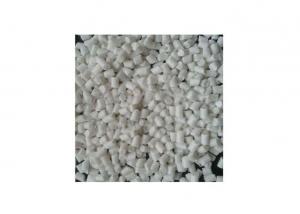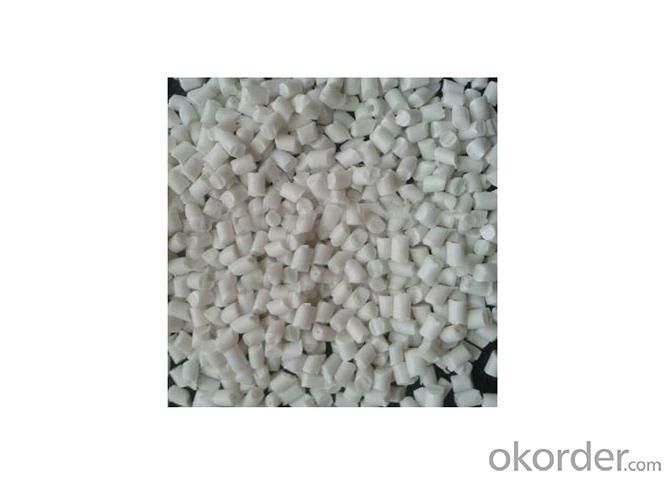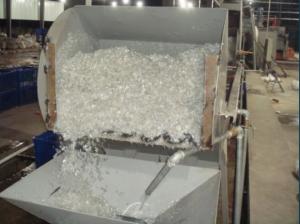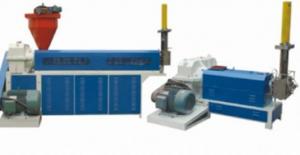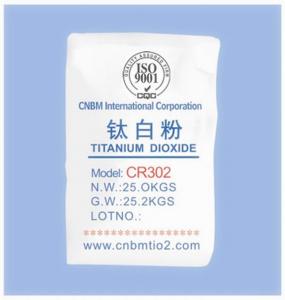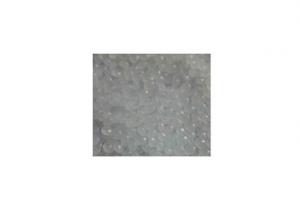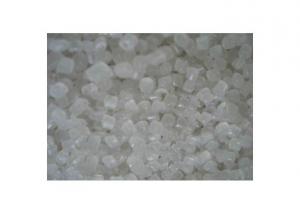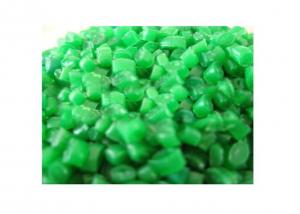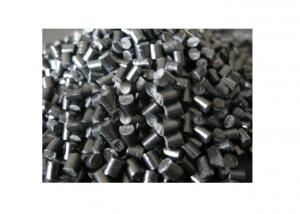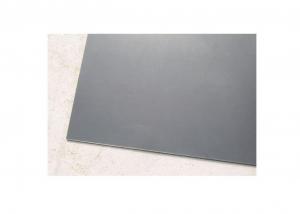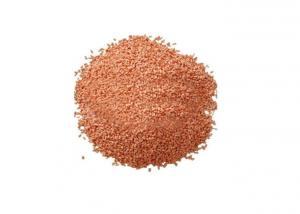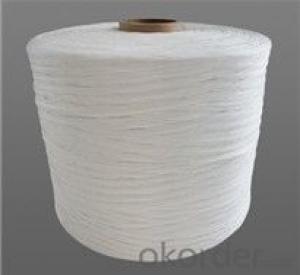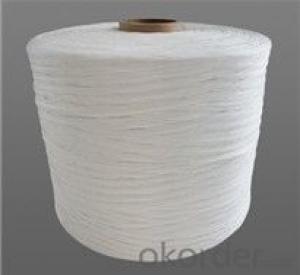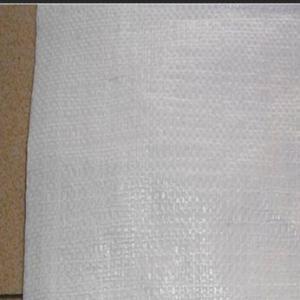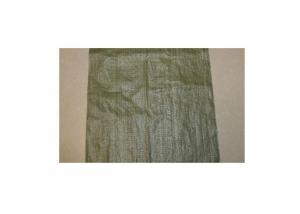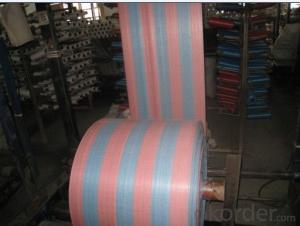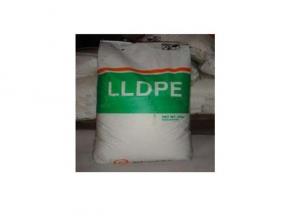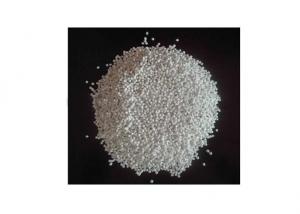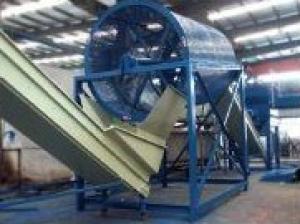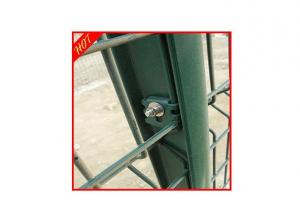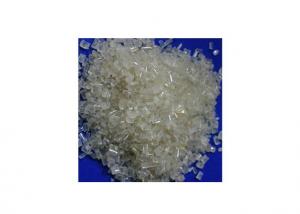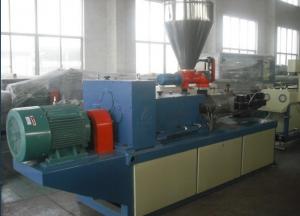Wear Resistance PP Granule
- Loading Port:
- China Main Port
- Payment Terms:
- TT or LC
- Min Order Qty:
- 23 Tons watt
- Supply Capability:
- 1500 Metric Tons per Month watt/month
OKorder Service Pledge
OKorder Financial Service
You Might Also Like
Detailed Product Description
wear resistance pp granule
1.good quality
2.manufacturer price
3.best service
4.quick delivery
Polypropylene PP Granules for PP Hollow Board and Pipe
1.Introduction
Polypropylene (PP plastic) is the nylon and good after a resin varieties, it is a kind of high density, no side chain, high crystallization will linear polymer, has excellent comprehensive performance. When not a white translucent color, waxy; Light than polyethylene. Transparency is also polyethylene, hardened than polyethylene.
Recycled PP pellets are very clean and top quality from excellent wwaste material, it can replace original plastic material.somethimes it can replace new material for some domain, reduce materials cost.
2.Usage and Applications
1>.Industry:Roadbed clothe/bank cloth/filers ,base of artificial suede and leather /roof cover ,ect.
2>.Agriculture: UL-treated products used in agriculture , crop tent .
3>.Civil /home Texitile: table cloth ,furniture ,disposable cloth ,pillow case ,headrest cover, bed mattress/bed sheet .
4>.Medical :Surgery cloth ,gown, cap,mask, shoes-cover.
5>.Packing :Cloth keeper, shopping bags, coverage, package bag etc.
3.Advantages
It has features such as high free volume, low pressure drop, low mass-transfer unit height,
high flooding point, uniform gas-liquid contact, small specific gravity, high mass transfer
efficiency and so on.
Product name:PP(polypropylene) resin,virgin&recycled.
Specification:
Properties |
Unit |
Test method |
Value |
Melt Flow Rate |
|
|
|
Melt flow rate(230°C/2.16KG) |
g/10min |
ISO 1133 |
12 |
Mechnical Properties |
|
|
|
Tensile modulus of elasticity(v=1mm/min) |
Mpa |
ISO 527-2 |
1550 |
Tensile yield at stress(v=50mm/min) |
Mpa |
ISO 527-2 |
35 |
Tensile yield at strain (v=50mm/min) |
% |
ISO 527-2 |
8 |
Tensile strain at break (v=50mm/min) |
% |
ISO 527-2 |
>50 |
Charpy impact strength unnotched(+23°C) |
kJ/m2 |
ISO 179/1eU |
110 |
Charpy impact strength notched(+23°C) |
kJ/m2 |
ISO 179/1eA |
3.0 |
Izod Impact strength notenched(+23°C) |
kJ/m2 |
ISO 180/1A |
3 |
Ball indentation hardness(H 358/30) |
Mpa |
ISO 2039-1 |
78 |
Thermal Properties |
|
|
|
Melting point,DSC |
°C |
ISO 3146 |
163 |
Heat deflection temperature ------------HDT/B(0.45Mpa) |
°C |
ISO 75-2 |
85 |
Vicat softening temperature ------------VST/A50(10N) |
°C |
ISO 306 |
154 |
Other Properties |
|
|
|
Density |
g/cm3 |
ISO 1183 |
0.91 |
- Q: Plastic pipe gas temperature 150 degrees, plastic pipe surface problems?
- The most widely used plastic pipe is plastic pipe. There are many kinds of plastic pipes, which are divided into two categories: thermoplastic pipes and thermosetting plastic pipes. It belongs to thermoplastic, including PVC pipe, polyethylene pipe, polypropylene pipe, POM pipe, super high molecular weight polyethylene pipe, etc. it belongs to thermosetting phenolic plastic pipe. The main advantages of plastic pipes are good corrosion resistance, light quality, convenient molding and easy processing. The disadvantages are low strength and poor heat resistance.
- Q: What is the raw material used in the production of plastic products?
- The microwave oven lunch box is made of this kind of material. It is resistant to high temperature at 130 degrees and has poor transparency. It is the only plastic box which can be put into the microwave oven. It can be reused after careful cleaning. Particular attention should be paid to the fact that some microwave oven boxes are made of size 05, but the box cover is made of size 06 PS (polystyrene). PS has good transparency and is not high temperature resistant, so it can not be put into the microwave oven with the box body together. PP. For insurance purposes, put the container in front of the microwave oven and remove the lid first.
- Q: I made of plastic raw materials accessories containing benzene, how to remove the teacher, please enlighten!
- The use of benzene: fats, resins and iodine and other solvents. Determination of mineral refractive index. Organic synthesis. Optically pure solvent. High pressure liquid chromatography is used as solvent, synthetic dyes, pharmaceuticals, pesticides, petroleum and chemical products, photographic materials, varnishes, nitrocellulose lacquer thinners, paint remover, lubricating oil, grease, wax, Sai Luluo, resin, artificial leather and other solvents. It must be the raw material you bought that contains some other additives. Benzene is not removed
- Q: Is the plastic with high melting index good?
- The melt index, the full melt flow index, or the melt flow index, is a numerical value that indicates the fluidity of the plastic material when it is processed.
- Q: What can recycled plastics do?
- Can replace some wooden products; can be used to make all kinds of plastic bags, barrels, pots, toys and other plastic products, living utensils. Recycled plastic granulator, plastic prospects, turn products (plastic particles) a wide, plastic enterprises demand, a medium-sized agricultural film factory, in need of more than 1000 tons of polyethylene particles, a medium-sized shoe factory in need of more than 2000 tons of PVC particles, smaller private enterprises, with particles in years more than 500 tons, so the plastic particles in a large gap, can not meet the demand, so the plastic manufacturers, sales of excellent, excellent benefits.
- Q: What is plastic film material?
- Plastic film material is plastic micelle, which is made by petrochemical enterprises from petroleum refining.
- Q: What raw material produces the plastic to the human body not to harm, to the environment does not have the pollution?
- Polylactic acid (PLA) and poly lactide, by microbial fermentation of lactic acid monomer chemical synthesis. After the use of automatic degradation, will not pollute the environment. Poly lactic acid can be processed into fibers and films have excellent mechanical properties, its strengthroughly with nylon fiber and polyester fiber. Polylactic acid in vivo can be hydrolyzed into lactic acid and acetic acid, and the metabolic enzymes of CO2 and H2O, so it can be used as medical materials. In Japan, the United States has been using polylactic acid plastic processing suture, artificial bone and artificial skin. Polylactic acid was also used in the production of packaging containers, agricultural film and fiberwith sportswear and bedding.
- Q: What are the raw materials needed for making plastic bags?
- The bags made of two materials each have their own characteristics, and are chosen according to the purpose and performance of the products. Polyethylene is petrochemical products, prices vary according to crude oil and market conditions every day, at present LDPE (high pressure polyethylene) offer at 13500 yuan. HDPE (low pressure polyethylene) at 11000 yuan up and down.
- Q: How to test plastic raw materials?
- Contrast the appearance quality of raw materials, separately open 1~2 bags, take out a little plastic particles, contrast the size and color of the plastic particles in each bag. And compare the same batch of plastic particles with the previous batch. There were no obvious differences in the color and graininess of the raw material particles in different packaging bags and batches
- Q: What is the raw material for producing high temperature polyethylene plastic bags?
- In the process, 2% montmorillonite can be added, which can significantly improve the thermal stability and tensile properties. For specific methods, please refer to the relevant literature.
1. Manufacturer Overview
| Location | Hubei, China |
| Year Established | 2011 |
| Annual Output Value | |
| Main Markets | North America South America Eastern Europe Southeast Asia Africa Mid East Eastern Asia Western Europe Central America Northern Europe South Asia |
| Company Certifications |
2. Manufacturer Certificates
| a) Certification Name | |
| Range | |
| Reference | |
| Validity Period |
3. Manufacturer Capability
| a) Trade Capacity | |
| Nearest Port | Tianjin,Qingdao,Wuhan |
| Export Percentage | 81% - 90% |
| No.of Employees in Trade Department | 6-10 People |
| Language Spoken: | English, Chinese |
| b) Factory Information | |
| Factory Size: | |
| No. of Production Lines | |
| Contract Manufacturing | |
| Product Price Range | |
Send your message to us
Wear Resistance PP Granule
- Loading Port:
- China Main Port
- Payment Terms:
- TT or LC
- Min Order Qty:
- 23 Tons watt
- Supply Capability:
- 1500 Metric Tons per Month watt/month
OKorder Service Pledge
OKorder Financial Service
Similar products
Hot products
Hot Searches
Related keywords
